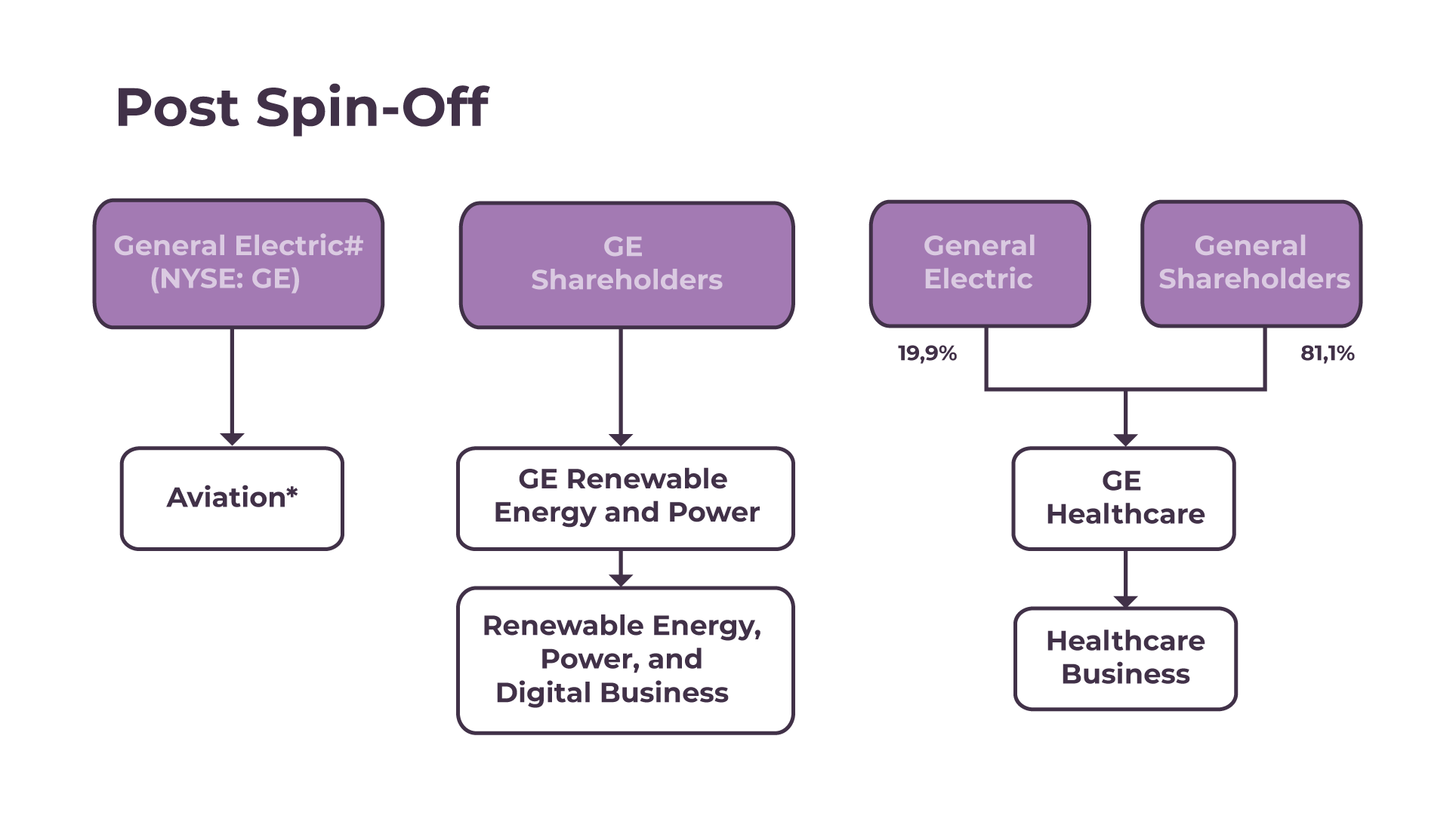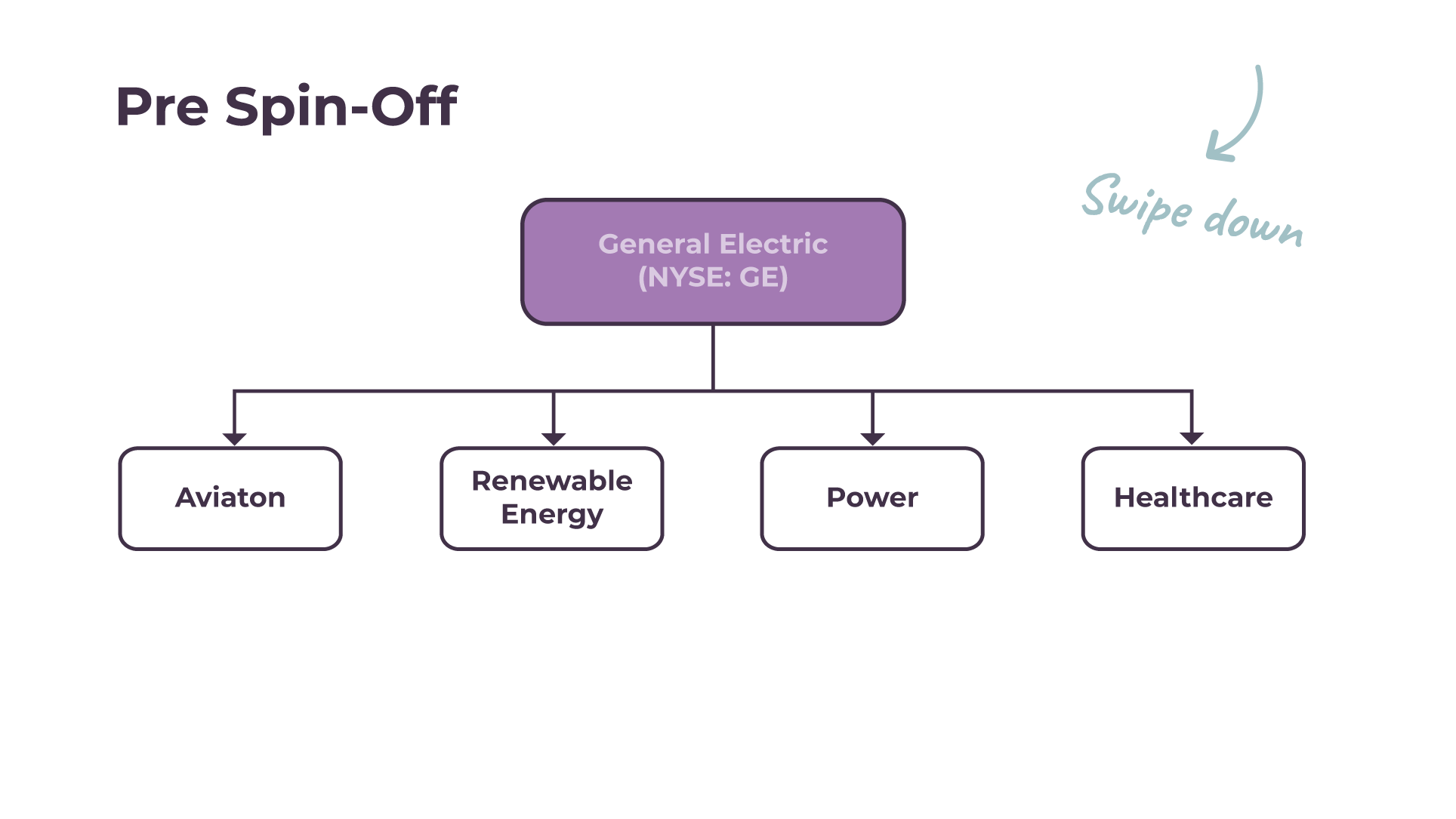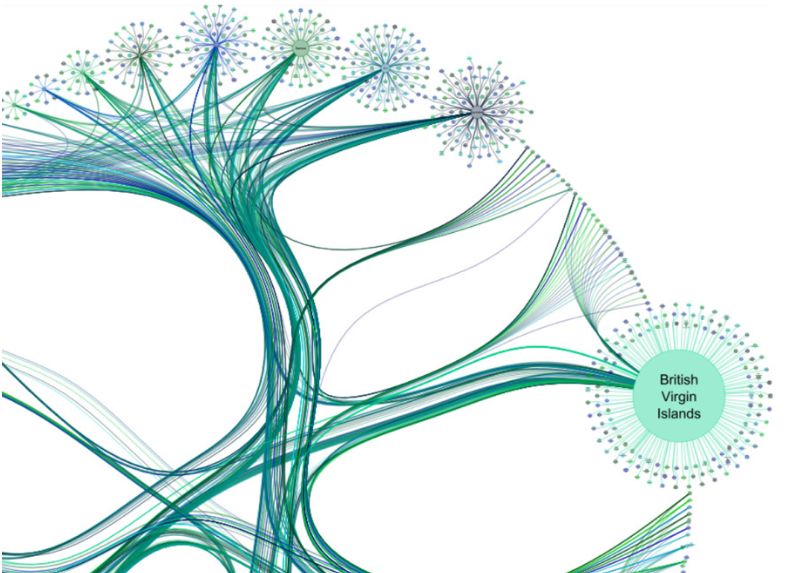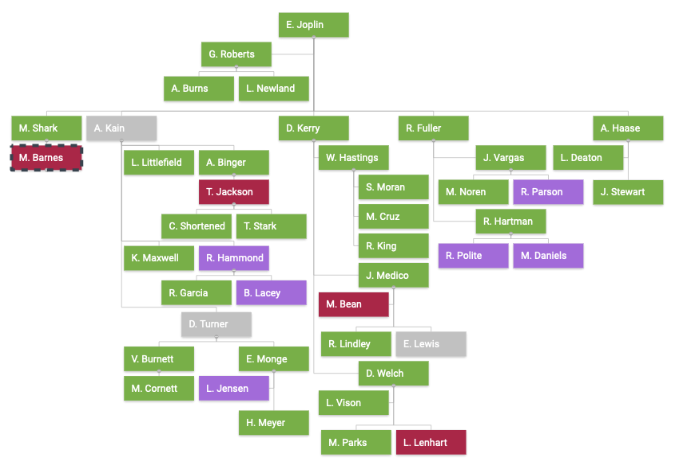Visualize & Optimize Company Structures with Graphs

Visualizing relationships and resources for organizational optimization.
To maximize business returns, it's important to ensure all parts of the company work together efficiently. Understanding corporate and organizational structures are essential for success, whether the company is big or small, simple or complex, local or transnational. Visualization is crucial for understanding, because humans process images faster and retain visual information better than text. Without diagramming, complex corporate structures are incomprehensible.
Our diagramming SDK, yFiles, simplifies visualizing company structures. It makes data silos and static charts a thing of the past and lets you map and visualize all possible combinations of intra- and inter-company structures, in order to then analyze and optimize them based on real-time insights. Replacing static charts with flexible, interactive diagrams provides a comprehensive and dynamic view of even the most convoluted organization. Visualization grants insights, exposes inefficiencies, and builds consensus through a common view of complex structures and relationships.


yWorks – the diagramming experts – offer a customizable library for company structures and more.
Building visualization tools from scratch is costly and time-consuming. With more than 20 years of expertise, yWorks has developed a highly customizable library of ready-to-use components: yFiles. Get in touch to learn more!
Static map or dynamic system?
Visualizing a company structure is indispensable, but it’s only the first step. Consider this diagram of the global mobile telecom ecosystem around 2010. 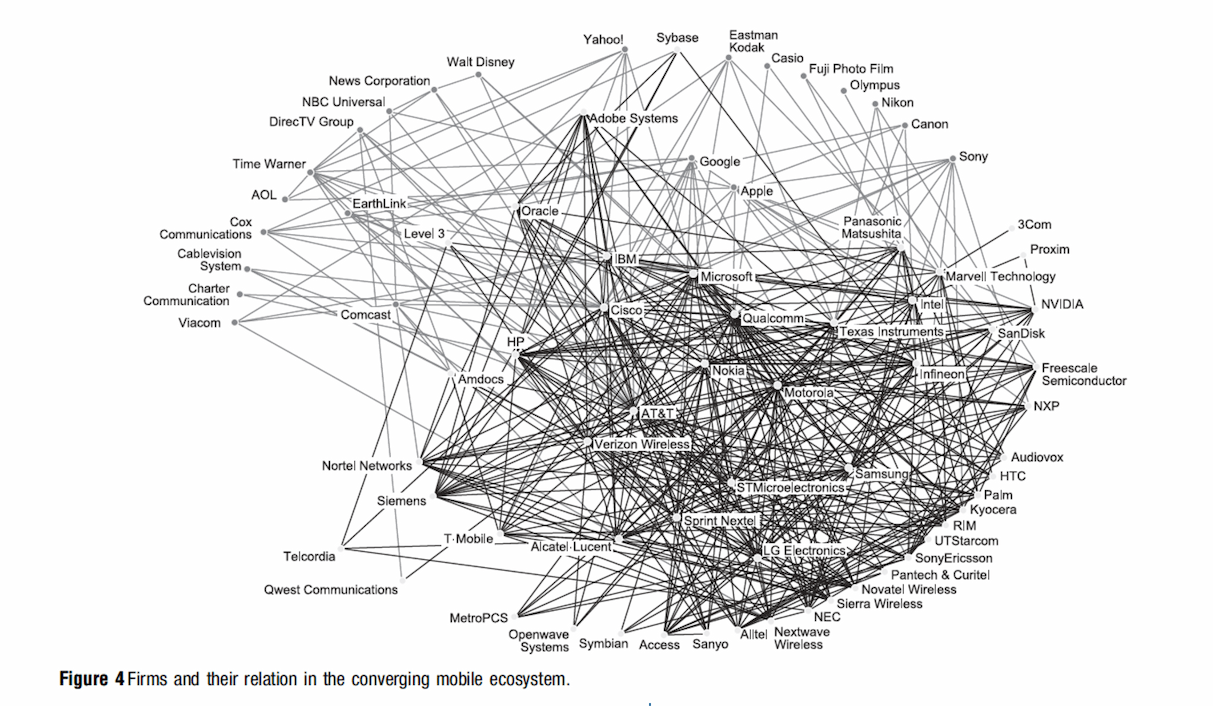 Source: Visualization of Interfirm Relations In a Converging Mobile Ecosystem.
Source: Visualization of Interfirm Relations In a Converging Mobile Ecosystem.
As a means of communicating the complex interrelations in the ecosystem, this single image is more powerful than pages of text. But beyond that, it’s basically useless.
Analyzing, comprehending, and potentially optimizing the ecosystem requires interactive tools that support functions like isolating and magnifying nodes, highlighting orders of relationships, and dynamically transforming the diagram format. By the same token, today’s volatile, fast-changing business environment calls for interactive tools to diagram and manage even simple company structures.
Did you know?
Our diagramming SDK can import data from any source – including Excel, JSON files, relational databases, graph databases, and everything you can access programmatically.
 Company structures can be complex, with many layers of management, teams, and departments. Visualizing these structures with diagrams can help leaders and employees better understand their roles and responsibilities. yFiles provides powerful tools for creating these diagrams, allowing for customization and flexibility to meet the needs of any organization.Sebastian Niedworok, Consultant, yWorks
Company structures can be complex, with many layers of management, teams, and departments. Visualizing these structures with diagrams can help leaders and employees better understand their roles and responsibilities. yFiles provides powerful tools for creating these diagrams, allowing for customization and flexibility to meet the needs of any organization.Sebastian Niedworok, Consultant, yWorks
What to expect on this page
The yFiles diagramming SDK
yFiles offers a comprehensive solution for creating organizational charts to represent company structures. The graph visualization SDK is designed explicitly for diagram visualization. Its advanced layout algorithms can comfortably transform your data into readable, informative, and stunning diagrams. In contrast to a generic graph editor or app, yFiles lets you create tools tailored to your specific requirements. It provides a graph visualization component, graph editor features, and an extensive set of algorithms for automatic data arrangement and graph analysis.
Software developers use yFiles to display, edit, and analyze production processes, decision models, resource utilization, and more. Exporting and importing data is a breeze: yFiles is compatible with every data format and data source and available for every major platform: Web, .NET, and Java. And because yFiles can visualize data from different sources, data does not have to be first consolidated into a single database.

Diagramming company structures with yFiles
yFiles offers a comprehensive solution for creating organizational charts to represent company structures. The yFiles diagramming library offers numerous diagram layouts and algorithms for every type of organizational visualization.
Existing yWorks customers use yFiles to visualize and analyze a wide variety of tasks related to company structures, including intra- and inter-firm relationships, dealer and partner network optimization, determining beneficial ownership status, fraud and anti-money laundering (AML) detection, and personnel org charts. Regardless of the complexity of the visualization, all company data remains on premises.
Benefits in a nutshell
layouts
use case
label
code examples
support
customizable
Explore in yEd live

PETRONAS's complex company structure has helped make it a major player in the global oil and gas industry. (Source: petronas.com)
> Open this graph in yEd Live
GE Organization StructureSpin-Off Research
The spin-off strategy being implemented by GE is an example of how company structures can evolve over time to adapt to changing business needs and priorities. By creating a separate business unit for GE Renewable Energy, the company is reorganizing its operations to better align with its strategic focus on this area. This type of restructuring can help companies streamline their operations, reduce costs, and create a more efficient and effective organizational structure. The resulting independent companies can also better pursue their own growth strategies and investments, without being constrained by the broader organizational goals and priorities of a larger entity. Overall, the GE spin-off illustrates how company structures can be adapted to better reflect business realities and maximize value for shareholders.
Interactive live demo
Interactive live demos
Interactive live demos
And you can do even more with yFiles
Many approaches can be used to design, monitor, and continuously improve processes. yFiles supports all of them – from depicting very large datasets and using visualizations like BPMN diagrams, flowcharts, network diagrams, and data flow diagrams to planning the movement of goods within your company. yFiles also provides many opportunities for analyzing data and generating insights.
Explore the interactive online demos that show the SDK’s strengths in company structures. The source code of the demos is included in yFiles – even in the free trial!
By the way, yFiles has a special talent: It adapts to any model, method, and scenario. Yes, even the ones we haven’t thought of yet. Just get in touch! Together, we’ll see how yFiles can meet your diagramming needs.
Do you have a data visualization challenge?
Ask our Customer Success Team!
We are pretty sure yFiles can support your use case, too.
Just talk to us – no strings attached!

you might want to explore
Start your journey here– with the diagramming experts

Our team is happy to advise you – no strings attached. Let's talk about your project and find the perfect solution for your needs!
E-mail: hello@yworks.com
Your message has been sent.
Your request could not be sent. Please reload the page and try again.
If the problem persists, please report the error to webmaster@yworks.com.
Learn more in our privacy policy.
